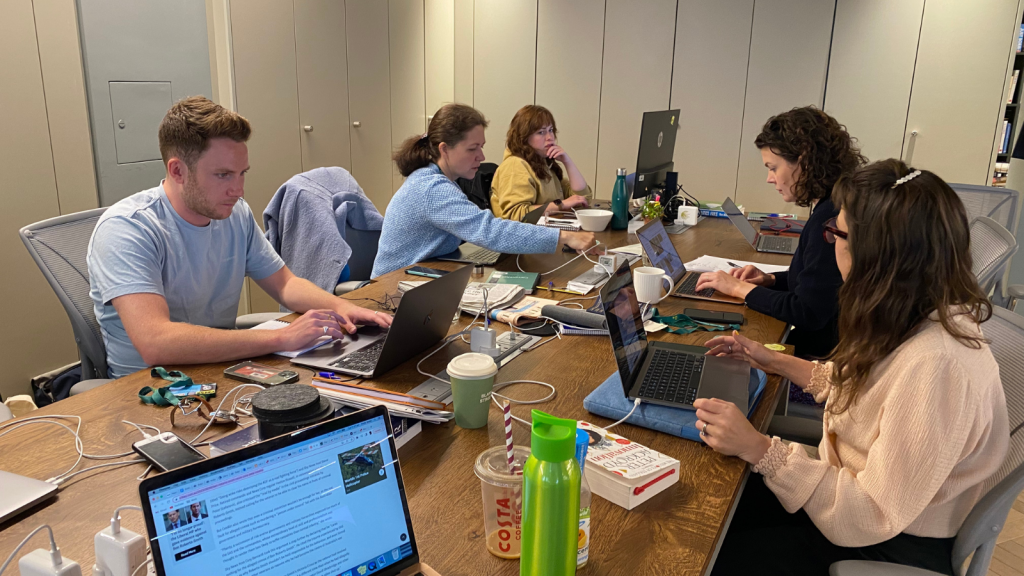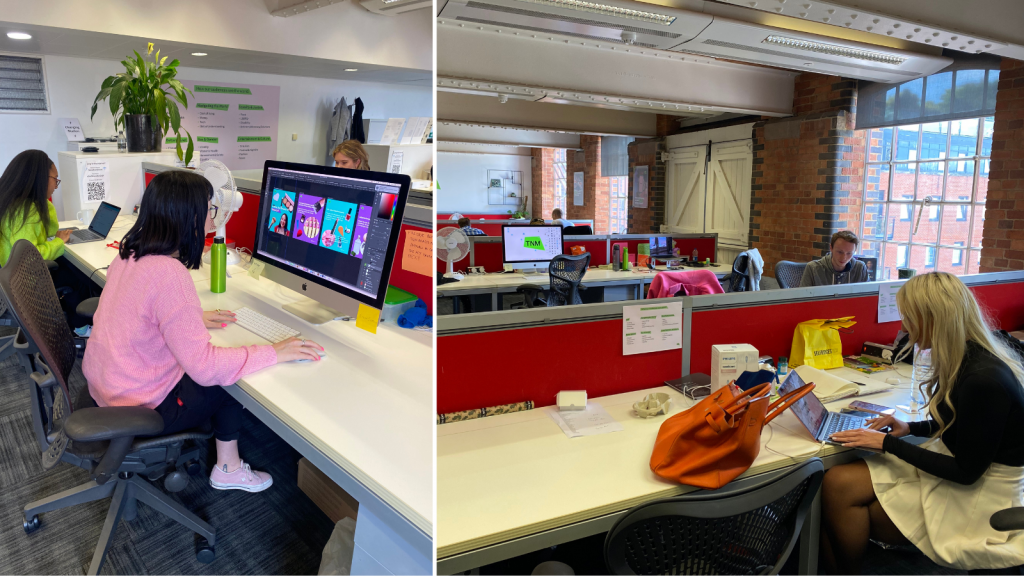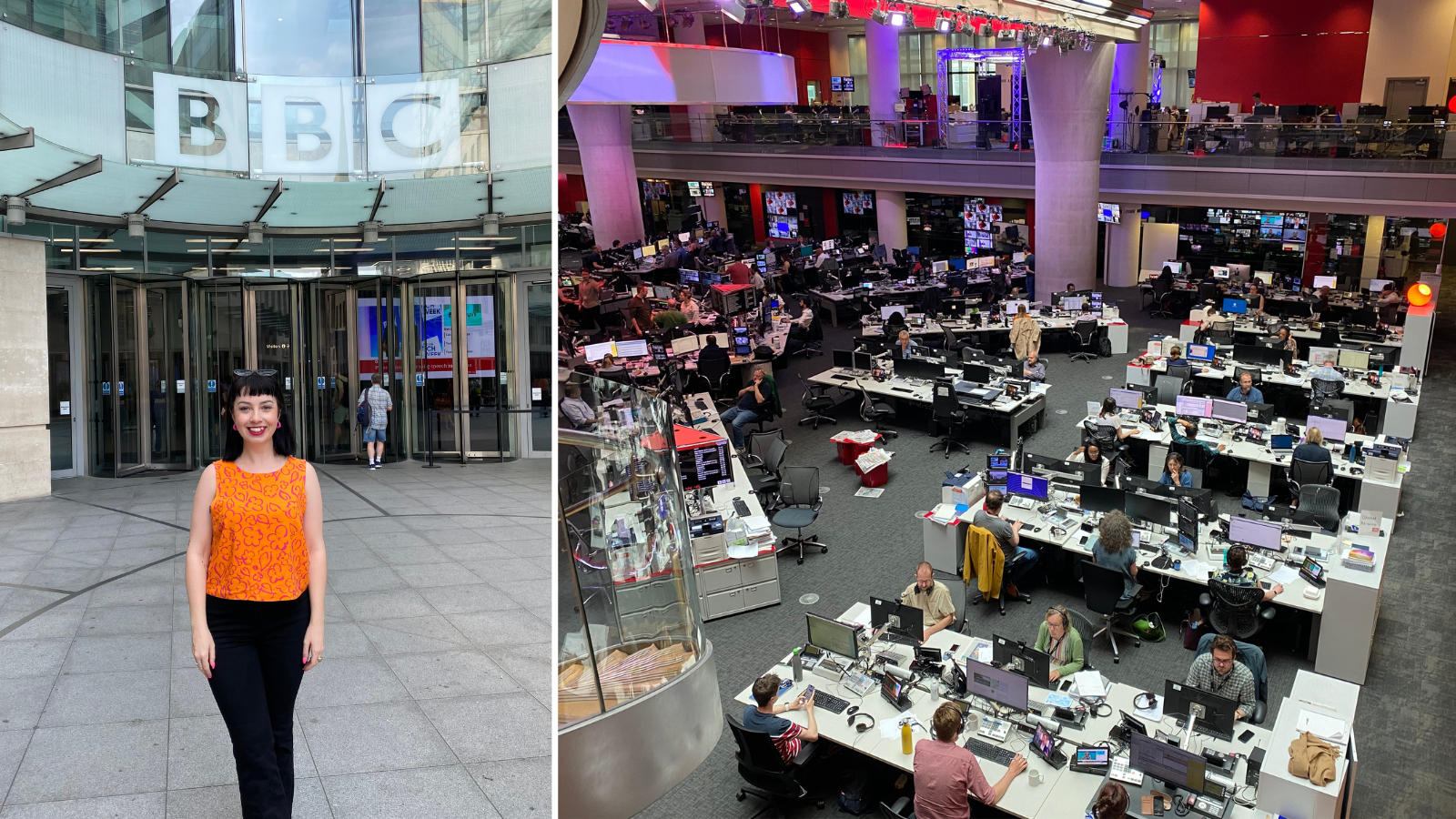Young Journalist Emily Baker said her time spent working in the UK left her feeling “re-energised to chase great stories” after returning to her post at ABC, Sydney.
Emily won the 2022 John B Fairfax Family Young Australian Journalist of the Year Award, also scooping the Public Service category and nominated for Shortform Journalism, at the Walkley Foundation’s 2022 Mid-Year Celebration of Journalism.
Thanks to the generous support of the Jibb Foundation, Emily flew to the UK in May 2023 to spend three weeks working at The News Movement, Tortoise Media and BBC Panorama.
We caught up with Emily to talk about her trip and how winning the major media gong has supported her career.
How did it feel winning the John B Fairfax Young Australian Journalist of the Year, and Public Service Journalism award, at the 2022 Mid-Year Celebration of Journalism?
It was a huge shock and a massive honour. I was really proud that stories from Tasmania had been recognised in this way.
What’s the most rewarding thing about investigative reporting?
Investigative reporting can be tiring and frustrating. By the time my first story on former Liberal MP Adam Brooks was published, I was so frazzled I was literally turning up to work with my clothes on backwards. But there is nothing better than having a breakthrough and being able to share a story you know to be true, particularly when it leads to positive change. The most amazing part of my job is the brave people I meet along the way. It’s a great privilege to be trusted with what are often very sensitive stories.
How important do you think it is to recognise and reward great journalism?
Great journalism can be time-consuming and resource-intensive. Recognising good journalism signals to newsrooms and the public that strong stories are worth the investment.

Emily Baker took this snap at Tortoise Media
As part of your award prize, you travelled to the UK to work in several newsrooms. What are the key things you took away from this trip that you feel will support you as a journalist?
I had a really good mix of experiences while in London, spending time with The News Movement, Tortoise Media and BBC Panorama. I was lucky to make some great connections with journalists and editors, all of whom were really generous with their time. I was particularly fascinated by the in-depth discussions about audience and trust. It was great to see each of the three newsrooms spend time quite carefully plotting what they covered and how they covered it, with their very different audiences front and centre at all times. On a very practical level, the lovely team at The News Movement quite patiently taught me the basics of Photoshop – something I had never used!
What were the highlights of your time working in the UK and has it given you a different perspective on Australian journalism?
The UK has a really dynamic news environment, though I was reliably informed I was the only person bothering to read the Evening Standard on my commute home. I found the conversations in the newsrooms were much more global. There are many similarities across the two news environments though – and I left London re-energised to chase great stories.
How important do you think it is for young journalists to have opportunities to work in international newsrooms?
I feel tremendously lucky to have travelled to overseas newsrooms as part of this award. Many journalists wait years for international opportunities. This gave me a taste of life as a reporter in the UK, and for that I am very grateful.

Emily spent a week working at The News Movement
Has winning the two John B Fairfax Family Young Australian Journalist of the Year awards created professional opportunities for you?
Absolutely. I was fortunate enough to be offered a six-month secondment with the ABC’s investigative team in Sydney soon after winning the prizes. While with ABC Investigations I had a story commissioned by Four Corners, where I worked with a wonderful team and learned so much. Our investigation into sexual misconduct by doctors was nominated for a Logie and won a Kennedy. I’m now really enjoying reporting for 7.30.
Where do you hope your career in journalism leads?
I just want to keep reporting. I genuinely really love my job and I’m passionate about what good journalism can achieve. I can’t imagine doing anything else.
What advice would you give to aspiring journalists considering a career in journalism?
My biggest piece of advice is to work in regional newsrooms. I started at The Examiner in Launceston as a 19-year-old, and I’m embarrassed to say I felt a bit snobby about working at my hometown paper. But I can’t imagine a better place to begin a career. I learned so much – how to correct a mistake, how to find a story, how to build contacts, how to ask hard questions. There’s so many opportunities outside metro newsrooms.
What are the biggest challenges facing journalists in 2023?
The same challenges we’ve been facing for a while – shrinking budgets, a growing army of spin doctors, a decline in trust. But I’m optimistic about the future of the industry.
Emily’s winning stories
- “’I’m real see’: Woman says Brooks lied about identity”
- “Brooks resigns after police raid”
- “Complainant speaks on O’Byrne allegations”
The John B Fairfax Family Young Australian Journalist of the Year Award is supported by the Jibb Foundation.



